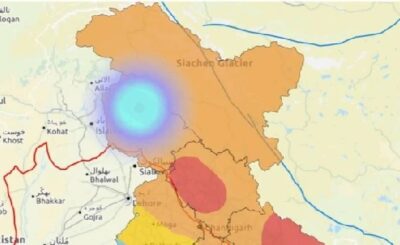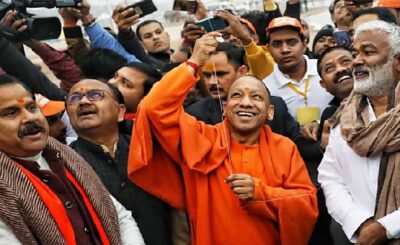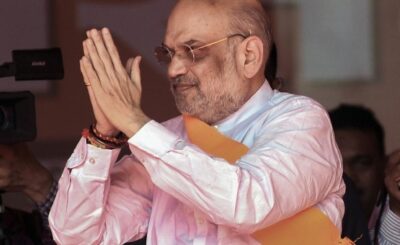A high-profile gathering of the high-level committee, recently established to explore the feasibility of holding simultaneous elections nationwide, held its initial session under the chairmanship of Ram Nath Kovind, former President of India. Notable attendees included Amit Shah, Union Home Minister; Arjun Ram Meghwal, Minister of State, Ministry of Law and Justice; Ghulam Nabi Azad, former Leader of Opposition, Rajya Sabha; N. K. Singh, former Chairman, 15th Finance Commission; Subhash C. Kashyap, former Secretary General, Lok Sabha; and Sanjay Kothari, former Chief Vigilance Commissioner. Harish Salve, Senior Advocate, participated virtually. Notably absent was Adhir Ranjan Chowdhury, Leader of the single largest party in the Opposition, Lok Sabha.
In his opening remarks, Chairman Ram Nath Kovind outlined the meeting’s agenda, emphasising the importance of the Committee’s work. It was decided to extend invitations to recognised National Political Parties, Political Parties holding governmental positions in States, and other recognized State Political Parties to solicit their views on simultaneous elections. Additionally, the Law Commission of India was invited to contribute its insights on the matter.
A robust exchange of ideas ensued during the meeting, with valuable suggestions emerging from Committee members. Chairman sagacious Ram Nath Kovind, legal luminary, a seasoned parliamentarian, and a doyen among politician, provided valuable guidance, steering the discussions with dignity, grace and insight. His objective approach and logical decision-making were instrumental in fostering consensus among Committee members.
The Committee proposed the phased implementation of simultaneous elections, beginning with Lok Sabha and assembly polls, followed by the integration of local body elections. While the initial phase would require constitutional amendments, subsequent phases would necessitate ratification by half of the states.
Despite receiving support from 32 political parties, including the BJP, BJD, JD(U), and the NCP, the proposal encountered opposition from 15 political parties, including the Congress, Left parties, and the TMC, who argued that simultaneous elections could undermine the federal structure.
The Committee highlighted the economic and administrative advantages of simultaneous elections, citing the burden on government resources and the disruption caused by frequent electoral cycles. It emphasized the need for stability and efficiency in governance.
Recommendations included constitutional amendments to enable simultaneous elections and the preparation of a single electoral roll and Electoral Photo Identity Cards (EPIC) for all tiers of government, requiring ratification by not less than one-half of the states.
Moving forward, the Committee’s recommendations will undergo further scrutiny and deliberation, with a view towards initiating the necessary legislative amendments and administrative reforms.
The Committee commended all stakeholders for their contributions, reaffirming its commitment to advancing democratic ideals and governance principles.
Additionally, the Committee suggested that in the event of a hung house or a no-confidence motion, the President or Governor should install a government enjoying the support of the House, giving an opportunity to the largest party along with their pre-poll or post-poll alliances. If no government is formed, the President may call an all-party meet. If these options fail, mid-term polls should be called to constitute the new Lok Sabha or state legislative assembly for the “unexpired term” of the house. Furthermore, the 22nd Law Commission, headed by Justice Rituraj Awasthi, has submitted a final report on the feasibility of holding simultaneous elections to the Lok Sabha, state assemblies, and local bodies to the Union law ministry before the announcement of the Lok Sabha poll schedule.
The Commission has recommended several amendments to the Constitution to facilitate a full-fledged rollout of simultaneous polls by 2029. Along with amendments to the Representation of the People Act, 1951, the panel has suggested a new chapter in the Constitution on holding simultaneous elections and the creation of a common electoral roll.
See also:
UK MP Sharma supports ban on puppy smuggling trade
Gyanesh & Sukhbir fill Election Commission void









